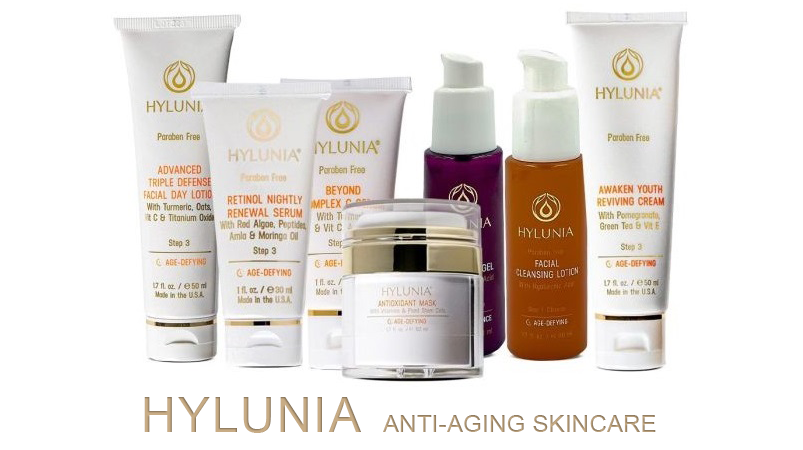
Moisturizer is the MVP in any skincare routine, but when it comes to mature skin, choosing the right one can make all the difference. Aging skin has unique needs, from hydration to support for collagen, and finding a moisturizer that covers these bases isn’t as simple as grabbing the closest jar. Here we break down what to look for in a moisturizer for mature skin, from essential ingredients to application tips, so you can keep your skin looking healthy, plump, and radiant.
Contents
Why Moisturizing Matters Even More for Mature Skin
Aging skin tends to lose its natural oils, which means it can dry out quickly, leading to fine lines, rough texture, and a lack of that coveted “bounce.” A quality moisturizer does more than just hydrate—it locks in moisture, helps protect the skin barrier, and can even deliver anti-aging ingredients that support collagen and elasticity.
How Skin Changes with Age
As we age, skin produces fewer natural oils and loses its ability to retain moisture as effectively. Collagen and elastin, the proteins that keep skin firm and resilient, also decrease over time. This makes skin thinner, drier, and more prone to wrinkles and sagging. A good moisturizer for mature skin helps address these changes, providing hydration while supporting skin’s natural defenses.
Common Signs of Dry, Aging Skin
- Fine lines and wrinkles that seem more pronounced
- A feeling of tightness or dryness throughout the day
- Dullness and a rough texture, especially around the cheeks and forehead
If you’re noticing these signs, it might be time to upgrade to a moisturizer specifically formulated for mature skin.
Key Ingredients to Look for in a Moisturizer for Mature Skin
Not all moisturizers are created equal. Certain ingredients offer specific benefits that mature skin needs, from hydration to firming to antioxidant protection. Here are some must-have ingredients to seek out when choosing a moisturizer for aging skin.
Hyaluronic Acid: The Hydration Hero
Hyaluronic acid is a powerhouse hydrator that can hold up to 1,000 times its weight in water. It works by drawing moisture into the skin, which is essential for keeping mature skin looking plump and reducing the appearance of fine lines. This ingredient is suitable for all skin types and provides lightweight but powerful hydration.
Ceramides: Barrier Builders
Ceramides are fatty molecules that naturally occur in the skin and help form its protective barrier. As we age, ceramide levels decrease, leaving skin more vulnerable to moisture loss and external irritants. A moisturizer with ceramides can help restore this barrier, locking in moisture and keeping skin soft and resilient.
Peptides: Collagen-Boosting Champions
Peptides are chains of amino acids that help support the production of collagen, which naturally decreases with age. By adding peptides to your routine, you encourage firmer, more youthful-looking skin. They also help with elasticity, making skin appear more lifted and less saggy.
Antioxidants: Free Radical Fighters
Antioxidants like vitamin C, vitamin E, and green tea extract protect skin from free radical damage, which can cause premature aging. Free radicals are unstable molecules generated by UV rays, pollution, and other environmental stressors, and antioxidants help neutralize them, keeping your skin looking brighter and healthier.
Retinol: The Anti-Aging Gold Standard
Retinol, a form of vitamin A, is renowned for its anti-aging benefits. It speeds up cell turnover, which helps fade dark spots, smooth fine lines, and improve skin texture. While it can be potent, many moisturizers for mature skin contain a lower concentration of retinol, making it gentle enough for daily use.
Choosing the Right Texture and Formula
Aside from ingredients, the texture and formula of a moisturizer can also impact its effectiveness. Mature skin tends to benefit from rich, nourishing formulas, especially if you experience dryness. But not all mature skin is the same, so here’s a breakdown of textures to help you choose what’s best for your skin type.
Lightweight vs. Rich Formulas
- Lightweight Lotions: Great for those with combination or oily mature skin, a lightweight formula hydrates without feeling heavy.
- Rich Creams: Ideal for dry or very dry skin, a thicker cream provides long-lasting hydration and helps lock in moisture.
If you’re not sure which texture to choose, think about how your skin feels throughout the day. If it’s often tight or dry by evening, a richer cream might be more beneficial.
Day vs. Night Formulas
Some moisturizers are specifically formulated for day or night use, offering unique benefits for each time of day:
- Day Creams: Typically include SPF and antioxidants to protect against environmental stressors.
- Night Creams: Often richer and may contain ingredients like peptides or retinol for overnight repair and rejuvenation.
Using separate day and night moisturizers allows you to give your skin what it needs at different times, maximizing hydration and protection.
Application Tips for Maximum Moisturizing Benefits
Even the best moisturizer needs to be applied correctly to work its magic. Here are some simple tips to make the most of your moisturizer for mature skin.
Apply to Damp Skin
Applying moisturizer to slightly damp skin helps lock in extra hydration. After cleansing, gently pat your skin dry but leave a bit of moisture, then apply your moisturizer to seal it all in.
Use an Upward Motion
When applying moisturizer, use gentle, upward strokes. This technique helps lift the skin and improves circulation, which can give your complexion a healthy glow.
Don’t Forget the Neck and Chest
The skin on your neck and chest is just as delicate as your face and tends to show signs of aging first. Extend your moisturizer to these areas to keep skin looking youthful and hydrated from top to bottom.
Recommended Skincare Routine for Optimal Results
Moisturizer is just one piece of the puzzle when it comes to taking care of mature skin. Here’s a quick routine that incorporates other key steps for anti-aging benefits:
- Cleanse: Start with a gentle cleanser to remove dirt and makeup.
- Apply Serum: Use a hydrating or antioxidant serum to layer additional benefits under your moisturizer.
- Moisturize: Apply your chosen moisturizer to lock in hydration.
- Sunscreen: During the day, finish with an SPF 30 or higher to protect against UV damage.
Consistency is key. Using a high-quality moisturizer daily, along with these steps, helps keep your skin looking healthy and radiant, even as it matures.

